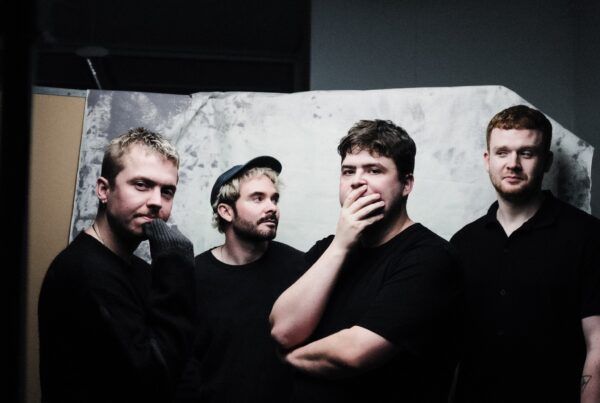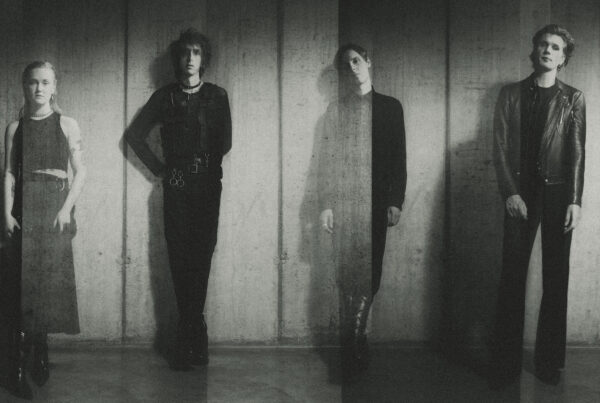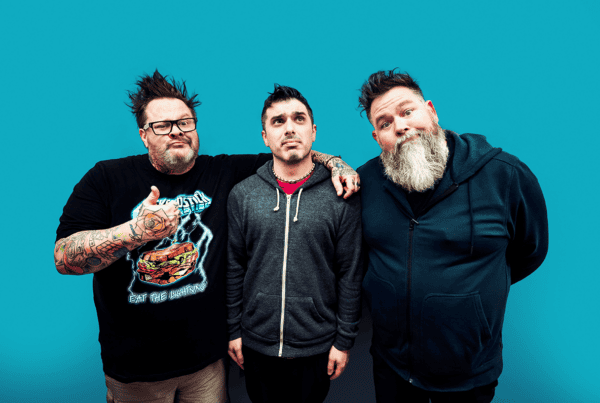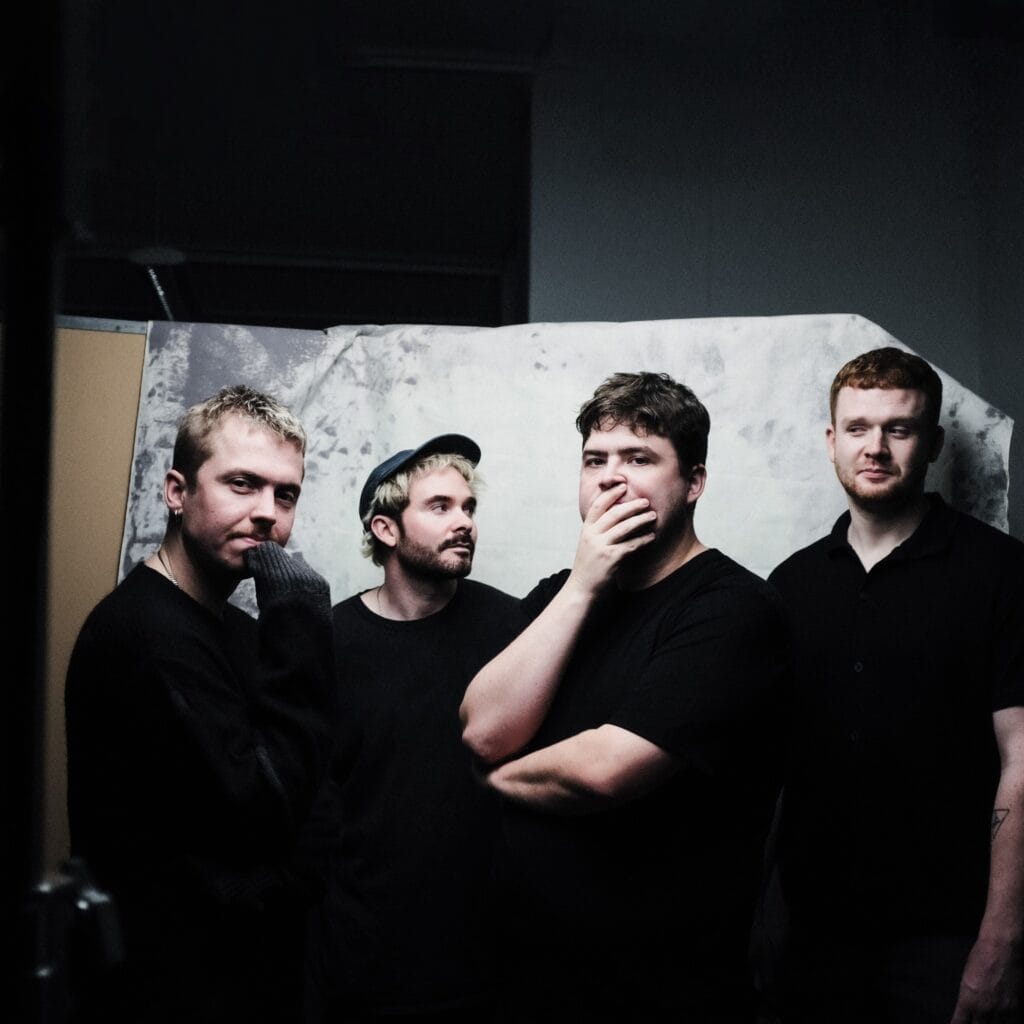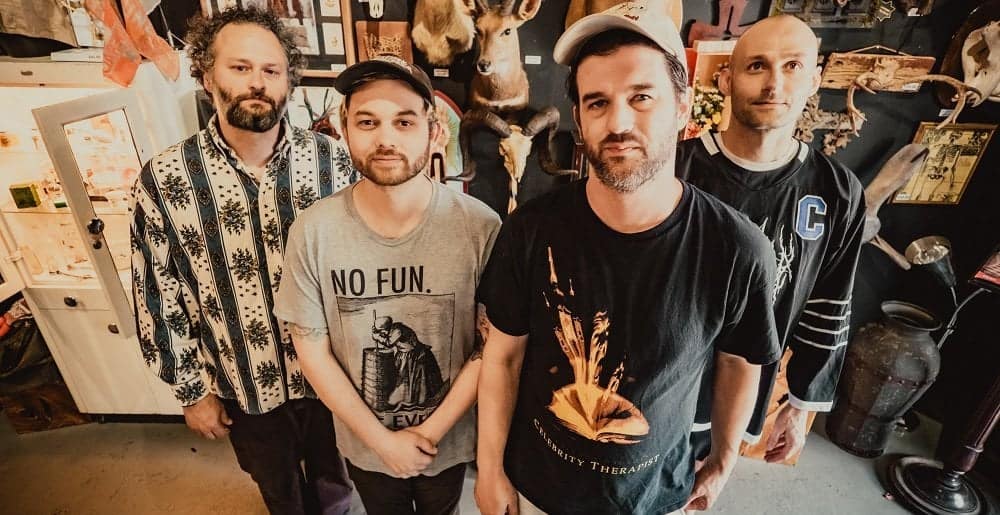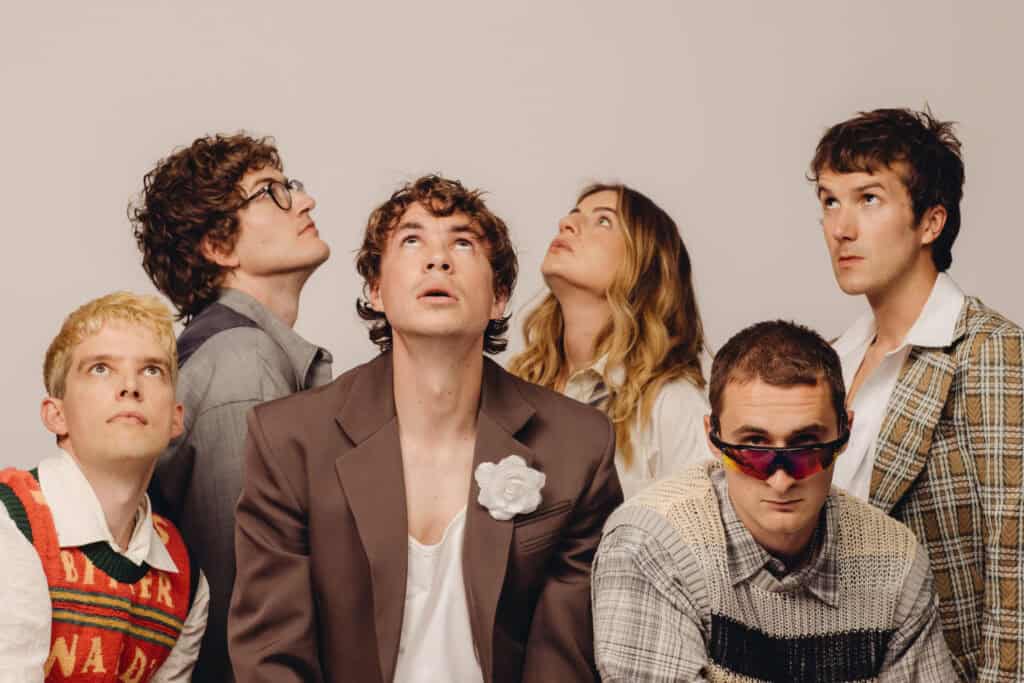Rob Holliday is an incredibly personable dude. Considering he has performed with some of the most influential and “explosive” alternative bands on the planet including The Prodigy, Marilyn Manson and Gary Numan, the guy has his head screwed on (pretty) tightly. With great pleasure we take some time out with Rob in advance of his own project Sulpher re-launching into the world with its first new material in over 10 years. In this interview, we discuss the career, Rob’s attitude to performance and plans for the rest of this year.
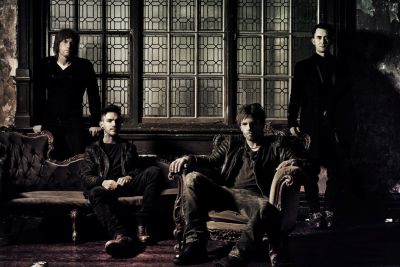
“Real music lovers are the only thing that keeps me interested in doing this”
S] Talk to us about your musical journey – How did it all begin for you?
RH] “Well, I began, I guess like a lot of musicians do; you get a guitar or something either bought as a gift, or you buy your own drums or something and learn from lessons or by ear. I got my first guitar bought for my 11th birthday. I then took a few lessons for around six months, but then got totally bored of that and just wanted to play and learn from the records that I liked! I’ve never been technically or musically trained since then, and I can’t read music at all. I have always done it simply by learning through the ear. I formed bands with school friends then just graduated up from there, playing with a lot of different people; word of mouth has got me into other bands.”
S] You’ve had killer opportunities that many people would…err, kill for working with the like of Prodigy, Marilyn Manson and Gary Numan – with each of these examples, can you take us through how it all happened?
RH] “With Sulpher, myself and Monti [drums, programming] first met while I was playing guitar and he was on drums in Toni Halliday and Dean Garcia’s band Curve. I was at a party at Siobhan Fahey’s [Bananarama / Shakespears Sister] place, which was pretty funny, because I was always totally in love with the girls in Bananarama when I was around 16-years-old. Anyway, Gary Numan was there at this party and we ended up chatting; myself and Monti were demoing the first Sulpher record, so Gary asked to hear it – he loved it and asked us to do some work on his new record and I then ended up playing live bass in his band too. With The Prodigy, Keith Flint had formed his own project [Flint] and I had gotten a phone call from a great friend of mine, the lovely Saffron from Republica [‘Ready To Go’ and ‘Drop Dead Gorgeous’] and she said to me ‘Flinty from The Prodigy needs a bass player for his new band! He has auditioned 20 and hates them all, and wants you to come down!’
So, I learned a bunch of the songs, and I guess I was the right guy for the job; that all folded and I hadn’t spoken to Keith for a couple of years, when The Prodigy’s manager called me up and said, ‘We need a new guitar player and Keith has said he wants you, so I met the other guys and we all hit it off right away – I played through a bunch of songs and they said, you’re in; do you need a rehearsal as we have a show next week. I was like ‘Na! I’ll fly out the day before with the crew and run through the songs in a basic soundcheck situation, then run the set with the rest of the band on show-day soundcheck, so that’s what happened! I was pretty much shi**ing myself when we hit the stage that night but it all went amazingly well!
With the [Marilyn] Manson thing, Liam [Howlett] had started working on ‘Invaders Must Die’ for The Prodigy and there was going to be a lot of time off. I had known Manson’s manager for a number of years and he had e-mailed me saying the band were coming over in the Summer to start touring the new record and that we should hook up. I mailed back and asked him who was in the band now, he said: ‘Manson [vocals], Ginger [drums], Tim Skold is now on guitar and maybe Chris Vrenna from Nine Inch Nails on keys’. I asked, ‘Who’s playing bass?’ and he replied, ‘We don’t have anyone yet.’ So, I called him up immediately and asked ‘Well, don’t I play bass?’ He was like, ‘Sh** yeah, hold on, let me call Manson and I’ll call you back in five minutes!’ Five minutes later, he called back and said ‘We’re flying you over at the weekend, learn a bunch of the old stuff you’re gonna go in and do a small rehearsal!’ That was that, there were no auditions or anything and I was the new bassist in Marilyn Manson; pretty bizarre but amazing!”
S] Why did you start Sulpher originally – what did you want to achieve, and has that goal changed at all?
RH] When it all started for us, myself and Monti had recently just got back from a US tour with Curve, and though we had already discussed working together on some material, we weren’t sure if we’d ever put a live band together but once the music started taking shape we just followed through onto the next step really; got the band together to play live.”
S] What advice would you give to any aspiring musicians?
RH] Really, it’s the same advice as I’d give to myself; follow your dreams, always and don’t let any negative comments ever stop you – practice and practice and practice ’til you get good, start your own band with friends and book some shows wherever-whenever; don’t expect to get paid! Do it because you love it! If you ever make any money or become popular then that’s a bonus and you are very fortunate – don’t expect it or take anything for granted.”
S] What has fuelled your passion for industrial music throughout your career?
RH] “I wouldn’t say my passion is industrial music as such. I’m into so many different genres and styles. I’m a weird one when it comes to music and art.”
S] Examining your career from the very start to now, how do you feel about the music industry as it stands?
RH] “I think the industry is sh**; real music fans and real music lovers are the only thing that keeps me interested in doing this. The industry is full of money-grabbing as***les who couldn’t care less about music, or the art of creating it. I don’t want to be a part of that.”
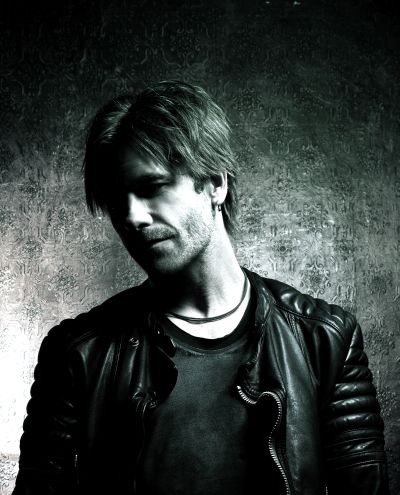
S] Do you find it easy to work with personalities like Manson, Numan, Liam Howlett, Maxim and Keith Flint, both musically and personally – are they open to your input?
RH] “Yeah, I mean I’ve always never had problems with any of artists I’ve worked with, or for – I guess they have respect for me, as I have for them. Obviously they have their own way and sound as such, and you have to fit in. I mean you can’t start playing sh** like Noel Gallagher when you’re with Manson; that’s pretty obvious. I guess, the bands I’ve played with, I have been perfectly matched for – it was meant to be!”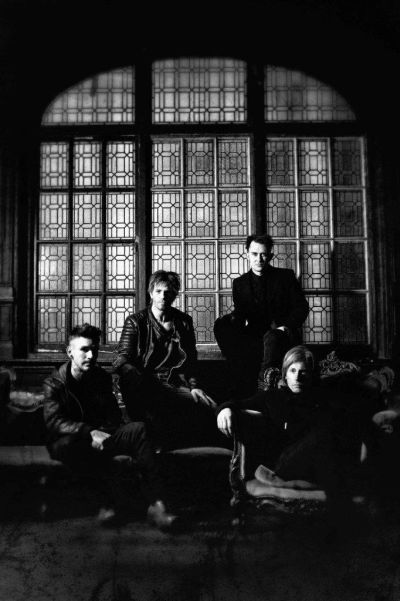
S] Many people might assume that, given your background, your lifestyle might be incredibly rock ‘n’ roll – is that the reality?
RH] “You mean taking drugs and f****ng strippers? Recently I started playing ice hockey again. Is that rock n roll?”
S] What has been the most challenging time for you over your career, and how did you overcome that?
RH] I guess, it’s been when I have struggled along like a lot of musicians for years, trying to actually get somewhere and be comfortable; trust me I’ve paid my dues man!”
S] How is working on Sulpher different to the process of working with bands like Manson and the Prodigy?
RH] The main, and most obvious difference is that the buck stops with myself and Monti which isn’t what it’s like in the other bands; in Sulpher everything is down to us – it’s a lot of pressure and can be quite stressful!”
S] You DJ regularly in Europe and the UK – how do you enjoy that in contrast to working in bands?
RH] “Yeah, I mean I do the odd DJ thing. i wouldn’t classify myself as a DJ at all. I just play stuff i like at some rock and fashion events. I am not a typical DJ and I don’t wish to be. The deal is that I get requests to DJ because I play in various known bands; that’s how I see it.”
S] Many bands have this idea that in order to succeed as a musician you need to be based in London or down South because that’s where “the industry” is – what are your thoughts on this?
RH] “That is total nonsense. If you are a great band or have great songs, then I don’t think it matters where you are from. Maybe it helps as far as meeting “influential” people – it is slightly easier in London or a bigger city, but it’s not necessary for success, I don’t think – I mean I’m not from London.”
S] Has the Sulpher live band changed or evolved recently?
RH] “Other than the fact we have added a new guitarist!? I think we’ve probably all evolved and changed and grown musically. This is definitely a major factor in how the new music sounds. That progression just seems a natural thing to us. The songs are more ‘song-orientated’, so to speak. Our vocals and lyrics are so much more melodic this time; that wasn’t something we thought at great length about doing, but it just happened when we were working, which is great as we really didn’t want to just do a repeat of the first record – that would-be pointless and somewhat boring!”
S] You’ve spoken before about the importance of family and friends – have they always supported your career, through good and bad times?
RH] “Yeah fully and completely; I mean obviously when I was a teenager I got the same old hassles that most kids do about getting a real job and all that kind of stuff! I mean, if I was a parent I would be saying the same thing to my kids, but my family knew that I was always going to follow my heart, and yeah they supported me all the way; they’ve seen every band I’ve ever been in – I’m very lucky in that way.”
S] What do they think of the new Sulpher material?
RH] “My mother still thinks it’s too loud! But, there is a haunting ballad [on the new record] which is all cellos and strings that she loves and I love it too, it’s such a departure from what we normally do. I think it will surprise a lot of people, it’s very beautiful”
S] Are there any new songs from ‘Delete’ that you feel perfectly define the state of Sulpher right now?
RH] “There’s a song called ‘You Threw It All Away’ and another song called ‘No One Will Ever Know’ that I think sound-wise, with the power, energy and melody we have, pretty much sums up our total overall sound at this point.”
S] Talk us through the making of ‘Threw It All Away’, it seems like quite a personal track – what inspired it?
RH] “Oh you know! it’s about a certain someone; I’m sure many people listening to it have already figured that out. It’s all based around someone that, at the time I felt could’ve been the one but… well, I’ll leave it there.”
S] Are you a control freak when it comes to your own music?
RH] “Yes, most definitely. Fortunately, myself and Monti have worked together for a lot of years now and we have a kind of brotherly understanding! We’re not afraid to just say ‘Fu** that, it’s not gonna work and I hate what you’re doing!’ We don’t get angry which is cool, we can just laugh at each other. I mean in the beginning on the first record [‘Spray’] we were close friends but it wasn’t quite so easy to be honest, and not pi** each other off – we had a couple of little bust ups a few times!” [laughs]
S] Looking back on tracks like ‘Unknown’ and ‘You Ruined Everything’ from the debut album ‘spray’ – what do they mean to you now?
RH] “They represent that point in time which is still cool to us. We were new and starting our band off; there was a lot of energy and stuff with those songs. I mean we hadn’t listened to them for such a long time and have recently been going through some of the old ones. They still sound great to us and will definitely still be played live.”
S] Final question now then, can you create a “Frankenstein’s monster” for us of your musical influences – for example the head of Rob Zombie and the leg of Dépêche Mode?
RH] Without going into all of my influences, I think you’ve pretty much already made the monster for me. You might need to change the Rob to White [Zombie] though!”
For more information visit the official Sulpher Facebook page.

